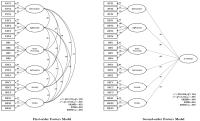PURPOSE This study both validated the Characteristics of Resilience in Sports Teams Inventory (CREST) scale for use in Korean sports and analyzed the impact of team resilience on teamwork and performance. METHODS The study surveyed 462 elite football players by using the CREST scale to measure team resilience in Korean sports. Data were analyzed using descriptive statistics, exploratory factor analysis (EFA), reliability analysis, correlation analysis, multiple regression analysis, and confirmatory factor analysis (CFA). RESULTS First, results confirmed that the CREST scale’s two main factors—resilient characteristics and vulnerabilities under pressure—can be meaningfully applied in the Korean context. Second, resilient characteristics showed positive correlation with life skills, whereas vulnerabilities under pressure showed negative correlation. Third, resilient characteristics positively predicted life skills, whereas vulnerabilities under pressure negatively affected life skills. CONCLUSIONS The CREST scale was found reliable and valid in the Korean sports context, demonstrating that team resilience significantly impacts life skills. Thus, the study contributes to evaluation of resilience in Korean sports teams and provides strategicinsights to improve team performance.
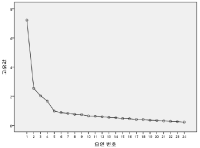
Purpose The purpose of this study was to develop the sport 5C scale of the Korean version. Methods The participants were 772 high school students from 17 to 19 who participated in sport regularly. The validation of Sport K-5C followed a three-step validation procedure through substantive stage, structural stage, and external stage. Results First, In the substantive stage, Sport K-5C consisted of 50 items with 5 factors. Second, in the structural stage, although Sport K-5C was explored as 24 items with 4 factors by EFA, but as a result of CFA, Sport K-5C was confirmed as 24 items with 5 factors. Third, the external stage provided additional validity through correlations of tests with other questionnaires which are similar concept and opposite concept, and group differentiation. Conclusions Sport K-5C is composed of 5 factors and 24 items. The factors are Caring, Character, Confidence, Competence, Connection. This scale can be used to provide an objective evaluation of positive development of youth in sport and physical education context.

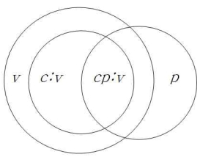
The purpose of this study which is follow up study of Lee and Kim(2015b)'s was to analyse error sources and estimation of reliability in peer review of forced connection method-sportscasting by applying generalizability theory. Generalizability theory quantify error sources of the data measured under certain specific situation set by the researchers. It is an analysis method that the relative influences of each error sources taking from score is determined(G-study), and the effective measurement condition future applicable is provided(D-study). Participants were 10th high school students(N=216). Data were collected from student's peer review results and analyzed using univariate and multivariate generalizability theory. Results showed that error source for video have a more significant impact than other error sources. But the result by analyzing the gender difference was that error source for the interaction of video and participants have a more significant impact than other error source in the case of girls. Peer review used in this study showed high generalizability coefficient and even when reducing the number of video or participants it can maintain the adequate reliability. But generalizability coefficient of boys was higher than girls and specific measurement conditions leading to enhanced reliability were different when analyzing by gender difference. Also, method of analysis which cannot reflect measurement conditions properly estimates the reliability excessive. Discussions were provided in term of the relative influences of each error sources, the effective measurement condition maintaining the Generalizability coefficient of a certain level, and the comparison the Generalizability coefficient with the way of estimation traditional reliability applying univariate and multivariate Generalizability theory taking from score in peer review of forced connection method-sportscasting.



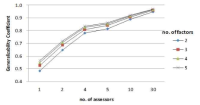
PURPOSE The purpose of this study was to validate the Korean version of Coaching Life Skills in Sport Questionnaire (KCLSS-Q). METHODS Substantive, structural, and external stages were undertaken to address the purpose of this study. At the substantive stage, the scale was translated by discussing with an expert panel and testing item clarity. Ten coaches (9 males, Mage=33.80, SD=4.21) participated in the item clarity test. At the structural stage, descriptive statistics, exploratory factor analysis (EFA), and confirmatory factor analysis (CFA) were conducted. A total of 249 (214 male, Mage=34.18, SD=6.82) and 232 coaches (186 male, Mage=34.26, SD=7.69) participated in the EFA and CFA, respectively. At the external stage, correlation analysis using other scales (emotional intelligence in sport coaching, EISSC) was conducted to examine concurrent validation. A total of 130 copies of the CFA data were randomly extracted and used for this stage. RESULTS For the EFA, the scale extracted five factors with 27 items. In the CFA, however, five factors with 26 items were identified as an appropriate structure. Finally, the relationships of all sub-factors between KCLSS-Q and EISSC were statistically significant in the correlation analysis. CONCLUSIONS KCLSS-Q should reasonably consists of nine items on structuring and facilitating a positive sport climate, five on understanding life skills, four on practicing life skills, five on understanding life skills transfer, and three on practicing life skills transfer. KCLSS-Q can be used as a valid measure to evaluate the coaching life skills of Korean coaches.
Purpose The purpose of this study was to develop the Emotional Intelligence Scale in Sport Coaching(EISSC) based on the emotional intelligence trait model. Methods The participants were 236 professional sports coaches by the purposive sampling methods via e-mails. 48 preliminary items were developed by literature review among expert panels. Then, a total of 40 items were selected after the item-analysis. Exploratory factor analysis was conducted for construct validity and criterion validity was evaluated by Person’s correlation with coaching efficacy scale and general emotional intelligence scale. An internal consistency, Cronbach's alpha coefficient, was used to see the reliability. Results The results of exploratory factor analysis presented a six sub-structure factors (Self-awareness, Awareness of others, Optimism, Utilization of emotion, Emotion regulation, Social skills) with 20 items, which explained 68.49% of the total variance. Criterion-related validity was supported by correlations with in coaching efficacy(r=.713) and general emotional intelligence(r=.647). Reliabilities were secured with Cronbach’s alpha coefficient .854 for the total 20 items. Conclusions The EISSC can be used to provide an valid measure of emotional ability of coaches in sport.
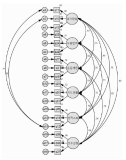
This study was to explore and confirm factors of sport psychology counseling needs in Korean elite coaches. In order to achieve this purpose, 56 elite coaches in Korean Olympic training center at Taereung and Jincheon responded on open-questionnaire and 260 coaches responded on survey. Open-ended questionnaire responses were analyzed by inductive content analysis and collected survey data were analyzed by exploratory factor analysis and confirmatory analysis. The results were as follows: Firstly, sport psychology counseling needs of elite coaches were competition preparation, negative athlete-coach relationship, athlete private problems, performance degradation, pressure on performance result, injury management, team cohesion degradation, motivation, training management, different gender athlete control, athletes drop out, pressure from outside, conflicts with colleagues, neglecting from athletes, feeling of incompetence, emotional control problem, and so on. Secondly, based on these responses, closed-ended questionnaire was developed, surveyed, and analyzed. Exploratory factor analysis illustrated that sports counseling needs of coaches were performance enhancement strategies, unreasonable pressure, negligence on training, coaching stress, competition result stress, conflicts with athletes. Finally, confirmatory factor analysis showed that construct of sport counseling needs illustrated appropriate fit indices values. The results of this study contributed to provide fundamental information on coaching education program and sport psychology counseling program development and application. Consequently, it will help coaches to control their mind at coaching in training and competitions.

Purpose Recently, studies associated with the negative physical and mental effects of athletes’ pain have received extensive attention. This study confirmed the validity of the pain catastrophizing scale (PCS) developed in clinical settings and is widely used in the sports field, and examined their relationship between the perceived stress levels and fear of pain. Methods The pain catastrophizing consisted of 13 items of three factors which are Helplessness (6 items), Rumination(4 items), Magnification(3 items). To verify the validity, PSC was revised by following the recommended revision guideline procedures. To test the validation of pain catastrophizing, 206 adult athletes were recruited including the collegiate, professional, and national levels. The participants were instructed to complete questionnaires to assess the level of pain catastrophizing, perceived stress, and fear of pain. Confirmatory factor analysis (CFA) to test the fit of measurement model was adopted to examine three higher-order three-factor measurement models. Results In results, confirmatory factor analysis indicated that the Korean version of the pain catastrophizing scale demonstrated a good model fit of measurement when removing one item with a significantly lower factor load as well as the reliability of the scale was reasonable. The pain catastrophizing had a meaningful positive direct relation with perceived stress level and fear of severe pain. In addition, construct validity and predictive validity of PCS showed valid. Conclusions Based on the results of this study, the Korean sports pain catastrophizing scale can be used to measure the subjective pain intensity of Korean athletes. In addition, it is expected to provide fundamental information for evaluating athletes’ post-injury rehabilitation processes.
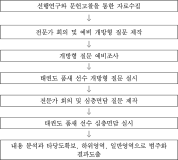
The purpose of this study was to develop and validity Competitive State Anxiety Scale for Taekwondo Form athlete(CSATF). The participants were composed of the 48 Taekwondo Form athlete to explore sub-factors of Competitive State Anxiety for Taekwondo Form athlete. The data were collected by an open-ended questionnaire and interview. The participants were composed of 257 national Taekwondo Form athlete to develop Competitive State Anxiety Scale for Taekwondo Form athlete. This 157 athlete data were used for items analysis, reliability analysis and exploratory factor analysis. And 100 athlete data were utilized for confirmatory analysis. Also convergent validity, discriminant validity, predictive validity latent mean analysis of CSATF were performed The results of this study were as follows. Firstly, the results revealed that the four general dimensions were identified such as cognitive anxiety, somatic anxiety, state of confidence, environmental anxiety. Secondly, CSATF comprised cognitive anxiety(5 item), somatic anxiety(5 item), state of confidence(5 item) and environmental anxiety(6 item). Thirdly, convergent validity, discriminant validity and predictive validity, the multi-group analysis according to gender examined validity of CSATF.


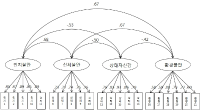
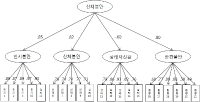
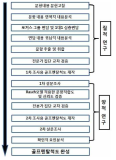
The purpose of present study is to develop the'Golf Mental Scale'that measures and assesses golf players' cognitive, emotional, behavioral response per golf mental factor experienced while competing in depth. In order to achieve this research purpose, Researcher collected raw data of golf mental question through literature review and interview with 8 members of Korean male national golf team and gathered questions per factor through Deductive-Inductive Content Analysis for the raw data. Then, Researcher conducted first and second questionnaire survey targeting 253 of elite & pro golf players and conducted Rasch Model and Confirmatory Factor Analysis for the data collected using SPSS 21.0, Winsteps Ver. 3.65 Program, AMOS 18. The conclusion reasoned out through these research process was as follows: First, golf players' psychological factor structure identified was revealed as Concentration, Self-confidence, Anxiety and Arousal control, Emotion control, Thought control. Total 37 questions were determined. Second, 5 point scale was revealed to be a good fit for Golf Mental Scale. Third, the result of Construct Validity Verification of CFA showed that Golf Mental Scale model was a good fit. Fourth, Reliability of Golf Mental Scale showed high level by recording Cronbach' α value .936. Fifth, Internal Consistency of Convergent Validity and Discriminant Validity was revealed to be satisfied. Eventually, Golf Mental Scale is expected to be used practically as a functional test tool that provides participant's response toward each situation-specific questions concretely and an objective evaluation of participant's golf mental ability per factor considering questions'level of difficulty and participants'characteristic.

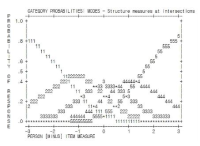
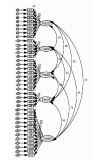
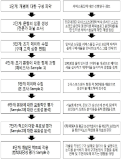
The purpose of this study was (a)to clearly define the concept of service quality as it relates to the online sports shopping mall, and (b)to develop and validate a psychometrically sound measurement scale, (c)examine the relationship among service quality and shopping satisfaction and intention of recommendation for marketing strategy internet sport shopping mall management. Following Churchill’s(1979) suggestions, the author developed internet Sports Shopping Mall Service Quality(E-SSMSQ). For the development E-SSMSQ (1)literature review, (2)focus group interview, (3)in-depth interviews (4)pilot test(n=97), (5)first data collected(n=459), (6)Frequency analysis, descriptive analysis, exploratory factor analysis(EFA) and reliability analysis for items evaluation, (7)confirmatory factor analysis(CFA) and correlation analysis for scale validation, (8)CFA, correlation analysis and structural equation model(SEM) test for predictive validity used second data collected(n=471). The current study conceptualized the service quality in the context E-SSMSQ by incorporating interaction, efficiency, order processing, information, security, and design. The authors also developed 20 items E-SSMSQ. The results of SEM support the psychometric property of the scale. First, interaction, efficiency and order processing of E-SSMSQ had significantly influence on internet shopping mall satisfaction. Interaction, efficiency, security, and design of E-SSMSQ had significantly influence on internet shopping mall intention of recommendation.

